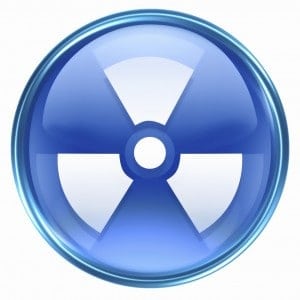
It is no secret that governments across the globe are pushing the use of fossil fuels out through society’s exit door and are increasingly welcoming of the use of nuclear energy. This is due to the increased acceptance of nuclear energy as one of the world’s major resources of environmentally safe energy.
Knowledge Management (KM) has a beneficial effect on business efficiency and reducing expenditure across any organisation, but what can KM do to help out in a growing nuclear industry?
Out with the Old and in with the New – Transferring Knowledge from Retired Experts
Nuclear energy is currently one of the most sought after energy resources in the modern day world, however it is also both scientifically and technically one of the most complex for the public to understand. This is why nuclear organisations hold the expertise and know-how of their workers as one of their most prized assets. However the industry has an ageing workforce, so what will happen when they have retired and their knowledge is gone?
Only the best and brightest talents are able to enter into what is both a lucrative and intellectually demanding industry, but no qualifications and exams alone can equip the next generation to be Suitably Qualified and Experienced Personnel (SQEP). Therefore the effective transfer of this existing knowledge is paramount in the preservation of the expertise that drives innovation and growth in the nuclear industry.
Losing this invaluable knowledge can be a dangerous forerunner to: degradation of the execution of stringent safety measures, loss of innovation, increased frequency of human error and ultimately stunted organisational effectiveness. More importantly an increased frequency of human error occurrence due to lost knowledge within the industry, will increase risk both for workers within the industry and the general public.
Addressing the Issues with Nuclear Maintenance
It has become commonplace for organisations within the nuclear industry to have some (if not the majority) of their nuclear power plant (NPP) maintenance work carried out by external contractors. There is therefore a crucial need to provide these external contractors with the most up to date information resources in relation to the work that is to be carried out.
Being able to transfer this knowledge effectively to external contractors is something that some individuals within the industry hold concerns over. This is due to the fact that maintenance of elements of a NPP such as valves, electrical components and pumps are fundamental in maintaining the high standards of safety within plant operations.
The Role of KM
Developments in nuclear technologies along with their increasing demands of society to manage them safely and effectively will only add to the current pressures on the retention of expertise and knowledge. One tactic that organisations within the nuclear industry are using to circumvent these pressures is KM.
Through the use of an effective KM system, corporations can ensure that knowledge is retained for as long as is needed and transferred to those who require it. KM enables tacit knowledge to be documented and accessed instantly at the point of need. For example, operational feedback can be augmented in the form of employee case studies or presentations that clearly present previous experiences or findings, and transferred to those who do not already have it. Again, design and operational knowledge can be captured so that knowledge of lesser known or complex situations in operations or maintenance is not lost.
This system could prove influential when effectively training new recruits through allowing access to a repository containing invaluable information from senior peers in the form of training materials. This not only preserves and transfers senior knowledge, but also acts as a tool to greatly improve efficiency across the organisation, as workers have instant access to the knowledge that they require, without the need for scouring multiple repositories or consuming precious time by asking numerous people. This increase in efficiency is a sure-fire way of reducing costs across the organisation as well as having a positive effect on time saving measures.
For more information on how Knowledge Management could benefit you and your institution click on the link below to contact us.
